“Brexit would be a hard challenge for any government. The next steps are crucial. So far they seem utterly complacent about the scale of the task ahead.”
When notification of Article 50 was sent from Westminster to Brussels, it meant that Brexit would now be negotiated over the next 2 years.
So what next for the EU?
The EU began its formation almost immediately after the 2nd World War ended. The first sign of it was the European Coal & Steel Community. The French, after around 300 years of conflicting with everybody over the future of the continent were left on the winning side of a war on a continent that had been destroyed. As Orwell fore told us, the Spanish were languishing under Franco’s dictatorship, the British were turning their back on the continent, the Germans were occupied and divided by the Allied victors and central Europe was blocked off by Stalin/Churchill’s “Iron Curtain”.
France, who had toyed with the idea – mooted by Churchill – of joining the UK, saw that they were isolated as well as economically and militarily weak.
Their response was to push the formation of what became the European Union, with the original six : Germany, France, Italy, the Netherlands, Belgium & Luxembourg. It was started by France to be a pedestal to project power to the rest of the world, whilst channelling German economic might away from military capacity. The European Union was initially gestated by France, for the interests of France. Fast forward to 1980 the French had started the groundwork on a monetary union.
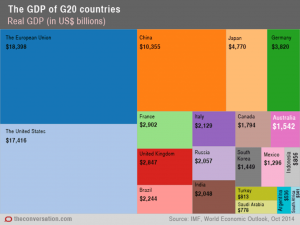
The Germans were not allowed to have any sway in foreign affairs after what happened in World War 2, so instead they would be allowed to design the economic union, the system of exchange & monetarist policy of the gradually appearing superstate. The intention was that France would take complete control of the political military union.
The Germans began the creation of the Euro.
Northern Europe has many large rivers, but they are not interconnected. This means each group around each river has its own way of doing things. Its own capital base, its own financial system and its own banking sector. They also developed an aversion to allowing anyone else to control these capital bases. In the U.S. banking makes up roughly a third of capital generation. In the UK it’s about 40%. In Europe that number can be over 80%.
This is precisely because these European capital bases don’t like foreign investors and foreign money having a say in how their system is run. Even with the European Central Bank, you still have 28 separate banking authorities in Europe, not one – this because the EU project wanted a single currency, but it didn’t want to include a central bank in the Monetary Union.
Despite this total lack of central oversight, the monetary union did allow the capital that was generated to flow anywhere within the EU zone with a minimum of problems.
This meant that back in 1999 when the euro was launched as an electronic currency all the money that normally pooled in northern Europe suddenly became available to everybody in southern Europe. Then in 2004 when the central European states got in, that money was accessible to central Europe, and so states that had no historical experience of being capital rich had exposure to German style low interest rates. Economic growth was inevitable. As were economic bubbles & collapses.
As the union expanded to more and more states France lost control of the political union completely.

As a result the military union of the EU is for all practical purposes dead. This is a stark reality that Russia has proven many times recently: European defence as a project no longer exists in any real sense. Without NATO, by which in infantry terms we mean the USA, the EU would not be able to defend itself against invasion. Hence Trumps bellicose demands for protection money, and the recent, belated desire in Brussels for its own military.
However, due to the up till now inherently de-militarised nature of the project – to channel German industrial might away from military capacity – EU defence is totally outnumbered by the Russians. The financial collapse coming in tandem with the rise of ISIS, in the wake of the illegal invasion of Iraq & the resultant refugee crisis has led to the de facto suspension of the Schengen area, with fences and border guards appearing across the continent. This shows that in a fundamental sense the political union is also on the brink of collapse, leaving only the economic union, which is run by and for Germany.
Germany is at the height of its productive capacity and its exports are boosted further by EU membership. This means nobody can keep up with them in production terms. In tandem with this, due to the fact their currency is coupled to weaker economies, the currency they use doesn’t get too strong (like sterling). Under the worst of situations, the German economy has proven that it is organised enough, has the capital base, has the industrial base to compete with anyone. Thanks to the euro, they now do this with a weak currency.
The Germans look at an EU where no one is capable of challenging their industrial base in the long term. By putting everyone into the same economic zone what has happened is that the smaller economies of Europe have been forced to compete economically with Germany, in an economic system designed by Germany, obeying rules written by Germany.German demographics are reaching a tipping point, meaning that Germany needs lots of immigrants to replace its rapidly ageing work force.
In Germany, instead of crippling unions, they are brought into government planning. The economic conditions of the German worker set the European standard. To live up to these standards, the rest of the EU has had to borrow money…..from Germany.
Much of the legislation passed by the EU in the form of directives has crippled the newer economies to the EU, as the laws were written for heavily industrialised, technocratic, modern, organised economies, like Germany. This has resulted in much of these new entrant countries turning into black markets, because their domestic situation simply cannot sustain the German/EU model.
The Common Agricultural Policy (paying farmers to throw produce away) is the largest most expanded agricultural subsidy in the history of the world. When it was conceived, France received nearly 25% of the total subsidy. Today there are 28 member states, and still France receives nearly 25% of the CAP subsidy – despite the fact Poland has more farmers. France started this entire project, and is now on the outside of the circle of control of its own enormous European plan.
All France got was an expensive military, NATO membership, the CAP and a trade balance shift from France to Germany that means that in the last ten years 5% of Frances export capacity per year has been lost to Germany. Over ten years that’s 600 billion euro of trade that France has lost and Germany has gained. In the modern era our role in the EU was seen, by many Germans themselves, as a necessary counter-weight to the might of the Germany economy.
It was often argued that our ancestors fought the 1st & 2nd World Wars to prevent Germany from dominating the European Continent : whether politically, economically or militarily. If that is true, for some Brexit essentially renders those sacrifices completely & utterly pointless. Whereas for others it is a reassertion of the independence we showed back then – an independence that stopped fascism from steamrollering across Europe, plastering it right wing forever.
The EU is undoubtedly on it’s way to being a German institution now, post Brexit. The rise of Le Pen in France is proof that France is not coming to terms with this. The last five years and the next five years are about Germany revamping the EU to better suit their purposes. Without the UK to balance their might, that task will be easy.
#PrimeMinistersQuestions #PMQs #Labour #Conservatives #JeremyCorbyn#TheresaMay
#Article50 #Brexit
|Share|Support|Sponsor #NyeBevanNews|Contribute and help us grow paypal.me/NyeNews|
This is a "Pay as You Feel" website Please help keep us Ad Free.
You can have access to all of our online work for free. However if you want to support what we do, you could make a small donation to help us keep writing. The choice is entirely yours.
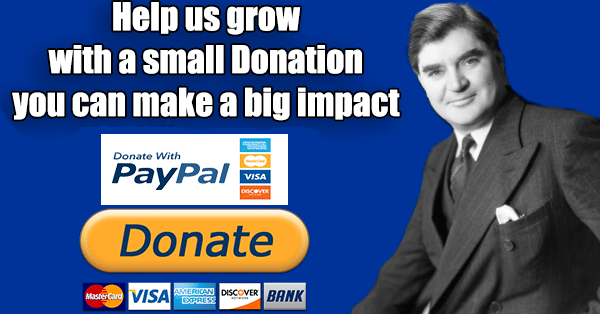









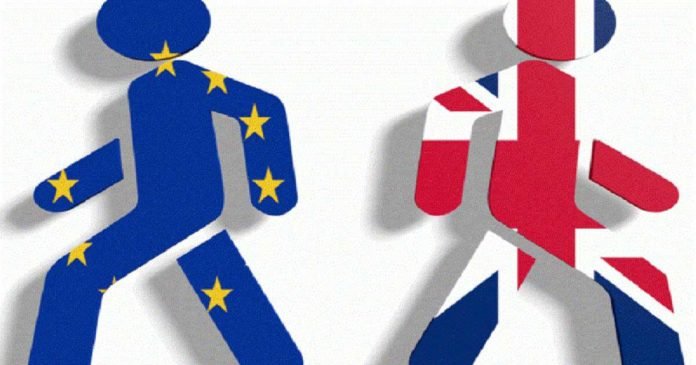






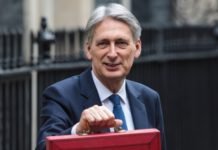

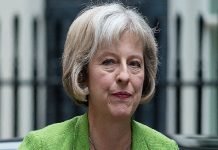




You must be logged in to post a comment.